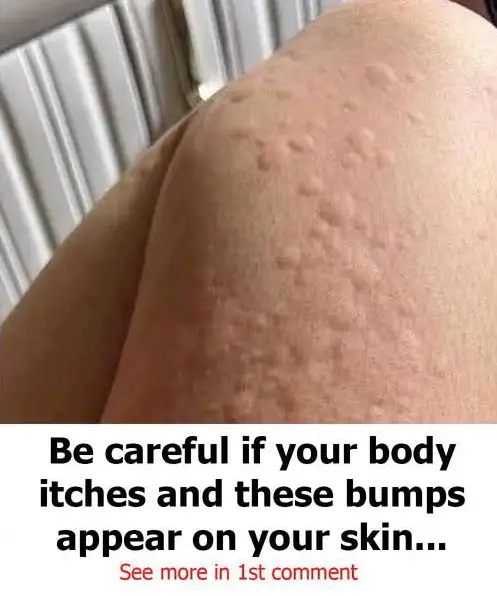For many older adults, skin issues aren’t just irritating — they can affect daily life, sleep, and overall peace of mind. One of the most frustrating (and often misunderstood) of these conditions is urticaria, more commonly known as hives.
If you’ve ever experienced red, raised, itchy welts that seem to appear out of nowhere and vanish just as quickly, you’re not imagining things. You may be dealing with urticaria — and you’re certainly not alone.
In fact, urticaria is more common than you might think, especially among people over 60. And while it may appear harmless at first, chronic or recurring hives can deeply impact your well-being and quality of life. The good news? With proper treatment and awareness, it’s possible to find lasting relief.
What Is Urticaria?
Urticaria is a skin reaction that causes itchy, red, raised welts, which can show up anywhere on the body. These welts may be small or large, and they often come and go unpredictably — sometimes lasting only a few hours, sometimes for days.
They occur when your immune system releases histamine, a chemical that causes blood vessels near the skin to leak. That leakage results in swelling and the telltale hives.
In some cases, hives can also come with angioedema, a deeper type of swelling — often in the eyelids, lips, hands, or feet — that can feel tight or painful.
Signs You Might Have Urticaria
Raised, red welts with a pale center
Severe itching
Welts that come and go, changing locations on your body
Swelling in the face, hands, or feet
Welts that disappear within 24 hours — but return in new spots
Important: If swelling involves the throat, tongue, or leads to difficulty breathing, seek emergency medical help immediately.
Types of Urticaria: Know What You’re Dealing With
Understanding your type of urticaria helps you and your doctor choose the best treatment.
▶️ Acute Urticaria
Lasts less than 6 weeks and is often caused by a trigger — such as food, medication, insect bites, or infection.
▶️ Chronic Urticaria
Lasts longer than 6 weeks and may not have a clear cause. It can appear daily or sporadically for months — even years.
▶️ Physical (Inducible) Urticaria
Triggered by specific environmental factors or physical actions. Common types include:
Dermographism: Hives caused by scratching or rubbing the skin
Cold Urticaria: Triggered by cold air, cold water, or cold surfaces
Pressure Urticaria: Caused by tight clothing or prolonged pressure
Solar Urticaria: Triggered by sunlight
Cholinergic Urticaria: Caused by heat, sweat, or exercise
What Causes Urticaria in Seniors?
Older adults are often more vulnerable to urticaria due to:
Multiple medications (some common prescriptions can cause hives)
Weakened immune function
Dry, sensitive skin due to aging
Unrecognized food allergies or sensitivities
Common Triggers Include:
Allergic reactions (foods, medications, insect stings, latex)
Infections, including colds or urinary tract infections
Environmental factors (heat, cold, sun, friction)
Stress, which can worsen flare-ups
Autoimmune issues, especially in chronic cases
Diagnosing Urticaria: What to Expect
If hives persist or return frequently, it’s important to talk to your doctor or dermatologist. They may:
Review your medical and allergy history
Ask about recent changes in diet, medications, or environment
Perform skin or blood tests, especially if allergies are suspected
Often, a diagnosis is made based on the appearance and behavior of the hives, along with your symptoms.
Treatment: Finding Relief That Works
Treatment depends on the type and severity of your urticaria. Most people find relief with a combination of medication and lifestyle changes.
✅ 1. Antihistamines
The first line of treatment. These block histamine, reducing swelling and itching.
OTC options: Loratadine (Claritin), Cetirizine (Zyrtec), Fexofenadine (Allegra)
Some people may need higher doses or prescription-strength versions
✅ 2. Corticosteroids
Short-term use (like prednisone) can reduce severe inflammation.
Note: Not ideal for long-term use in seniors due to side effects like bone thinning or high blood pressure.
✅ 3. Lifestyle Adjustments
Use fragrance-free lotions and soaps
Avoid hot showers or baths
Stay cool and avoid overheating
Wear loose, breathable clothing
Keep a symptom diary to track triggers
When to Seek Emergency Help
Call 911 or get emergency medical care if you experience:
Swelling in the throat, lips, or tongue
Trouble breathing or swallowing
Dizziness or fainting
These may be signs of anaphylaxis, a severe allergic reaction that requires immediate treatment.
Living Well with Urticaria
While urticaria can be persistent, it is treatable — and many seniors find great success managing it with the right combination of care and lifestyle.
If your hives are chronic or interfering with daily life, consider working with a dermatologist or allergist who specializes in chronic urticaria or senior skin health.
With support, awareness, and the right treatment plan, you can take control of your skin — and your comfort — again.
Key Takeaways
✔ Urticaria (hives) is common and often manageable
✔ Triggers can include medications, infections, heat, or pressure
✔ Chronic urticaria may be autoimmune and harder to pin down
✔ Antihistamines are usually the first step to relief
✔ Seniors should be aware of serious symptoms that need urgent care
✔ Daily habits — like gentle skincare and avoiding triggers — make a difference
You don’t have to live with the discomfort of urticaria. With the right knowledge and medical care, it’s possible to get relief and feel more like yourself again — one day at a time.






